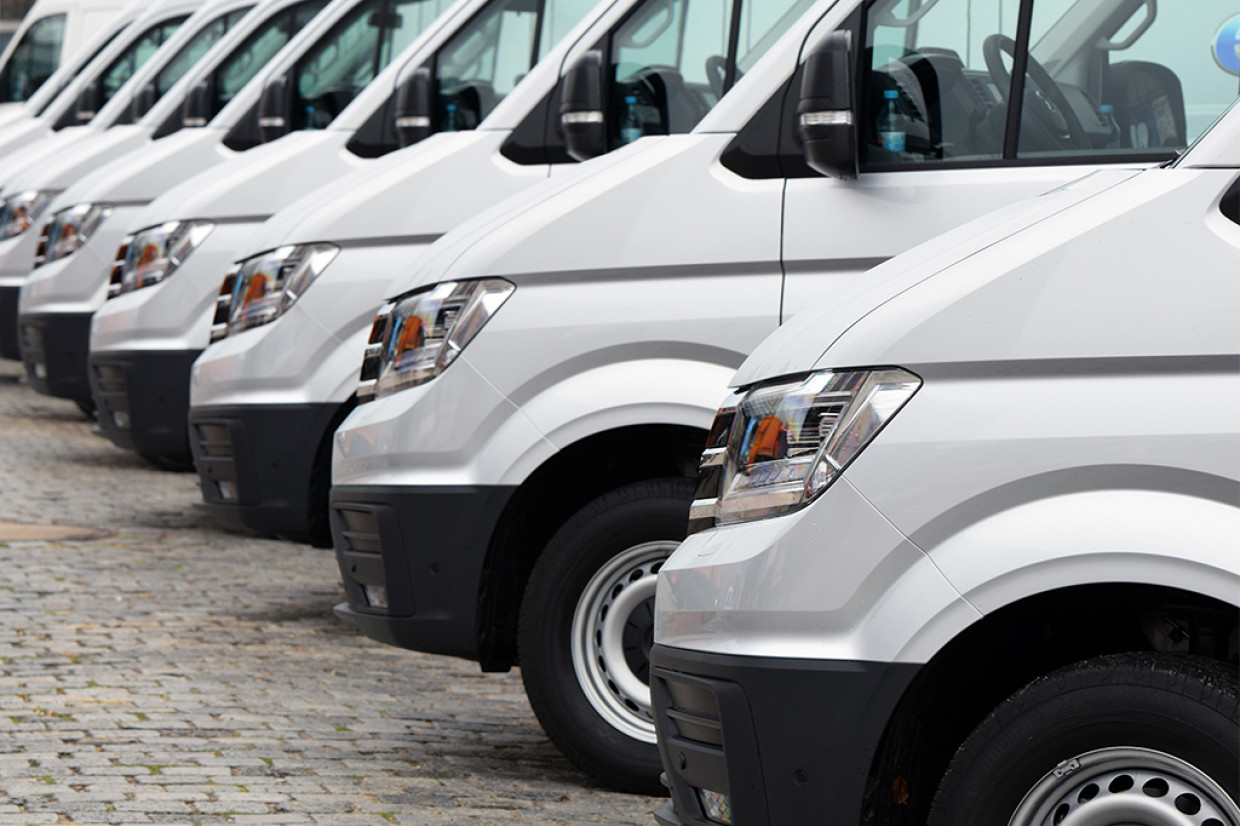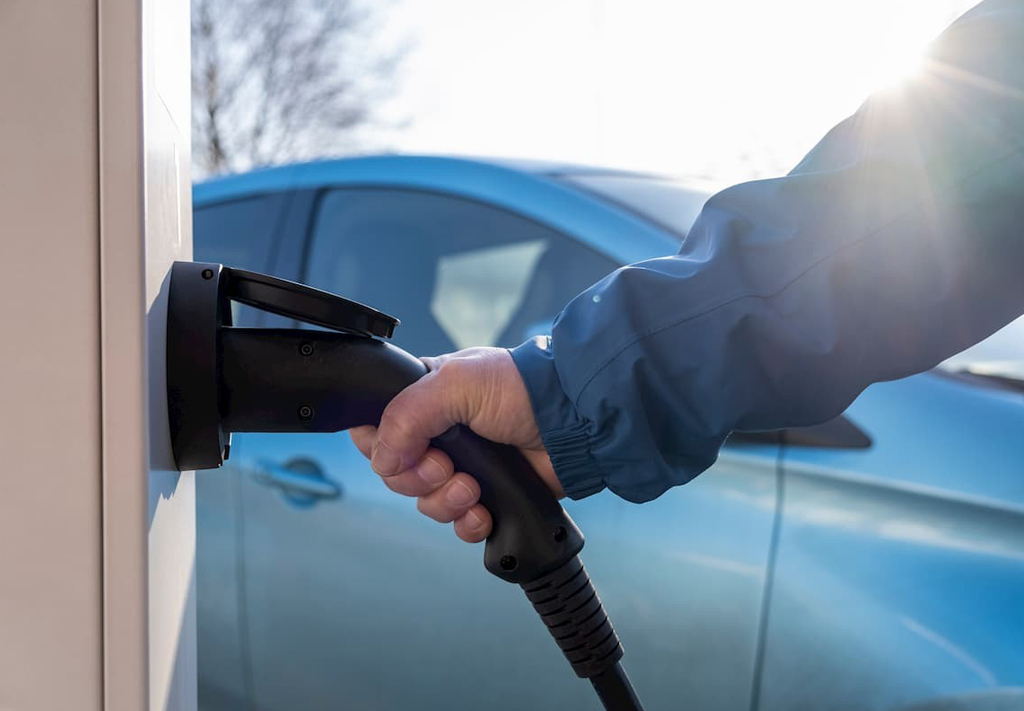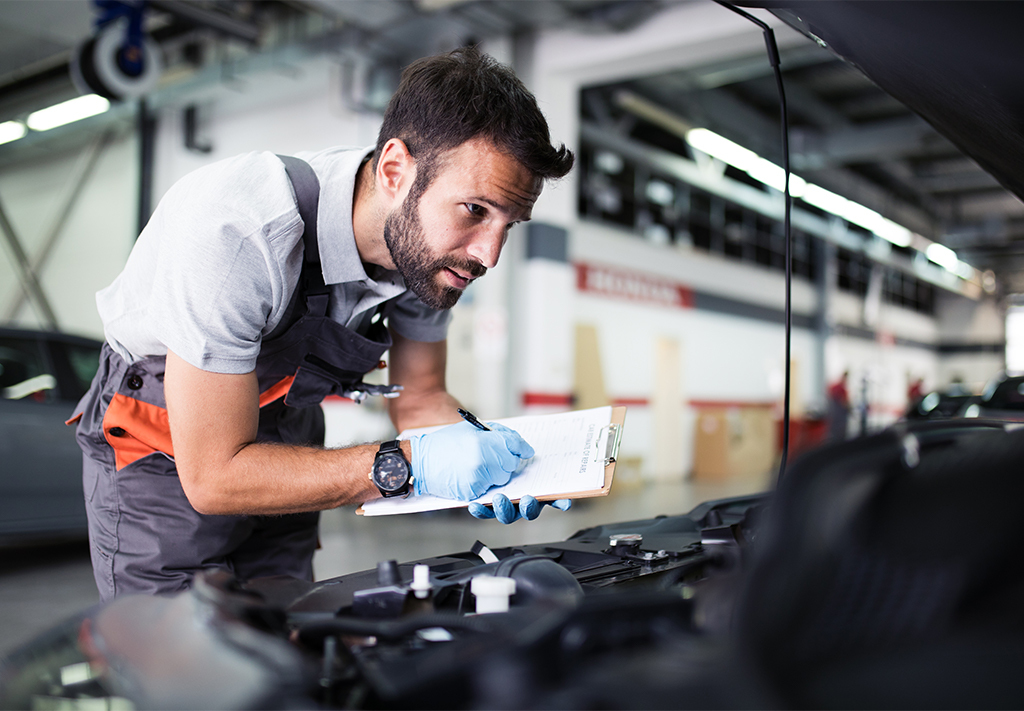
If one small change to your daily routine – switching just one trip per day from car-driving to cycling for example – can reduce your carbon footprint by an estimated 0.5 tonnes a year*, just imagine what a fleet of all-electric vehicles can do in lieu of their combustion engine counterparts. Therein lies OVO Energy’s strategy for electrifying its fleet.
The environmental impact of EVs is undeniable. The average electric car is capable of cutting your CO2 emissions by up to 83%** compared to an equivalent petrol model. With transportation accounting for 24% of the UK's total emissions*** it’s our collective responsibility to reduce pollution, particularly in built up areas.
While the upfront cost of an EV may be higher than a petrol or diesel equivalent – especially for fleet and company car managers keen to protect their bottom line – there are significant lifetime savings to be gained in sustainable mobility. These range from lower maintenance costs to lower running costs from affordable and flexible overnight home charging.
These are just a few of the reasons why OVO Energy has placed electric vehicles at the centre of its mobility strategy. Here, we’re taking a closer look at OVO’s transition to an all-electric future and the benefits it has already seen in doing so.
Learn more about OVO Energy’s all-electric fleet

Helping OVO Energy realise its Plan Zero
OVO Energy recognises that ‘powering human progress with clean, affordable energy for everyone’ starts with the supplier. If energy companies can practice what they preach, their customers will in turn understand their role in our greater, greener future.
OVO’s aim is to reach net zero by 2035 – cutting its carbon emissions by a staggering 90%, and only offsetting 10% of emissions it can’t avoid or reduce. It’s a monumental task but in OVO’s own words: “we know it’s the right thing to do”.
OVO Energy has already begun that journey by reassessing the way it runs all its operations. One of the first major areas of change was its fleet of commercial vehicles that provide support across the network. “Sustainability and reduced emissions are among the top reasons that attracted us to moving our fleet to electric vehicles, tying in perfectly with our Plan Zero commitment” says Ben Guest, OVO Energy’s Field Operations Director.
The environmental benefits are already shining through. OVO Energy’s Scope 1 emissions (that’s direct emissions from OVO’s owned or controlled sources) associated with its petrol and diesel vehicles has fallen by 53% since OVO started to electrify its fleet in 2019. Put simply, this equates to almost 5,300 tonnes of carbon cut.

Small changes make a big difference
OVO Energy’s all-electric Vauxhall Vivaro-e vans – one of the main additions to OVO’s electrified fleet, alongside the Nissan e-NV200 and Kia E-Niro – have already contributed to drivers saving 19kg of CO2 each and every day (based on a daily mileage of 80 miles).
As Ben explains: “That soon adds up when you have several hundred vehicles.” In August 2022 OVO Energy estimated a significant annual saving of 165 tonnes of CO2, compared with the previous year as a direct result of rolling out EVs to its engineers.
But, as Ben is quick to explain: “OVO’s Plan Zero commitment can only happen if everyone is aligned. EV adoption is a journey rather than a set destination that requires commitment from within and outside of OVO to make it a real success.” Education, and collaboration are therefore central components in this move to an all-electric future.
“We’ve laid the groundwork by developing training programs to support our drivers in their transition to EVs,” Ben adds. “At the same time, we’re installing charging infrastructure for them to maximise every journey. We’ve even gone as far as working with our racking and livery providers to minimise the carbon impact of moving from our petrol and diesel fleets.”

Saving the planet can also save you money
“Our business case, which underpinned OVO Energy’s Plan Zero commitment, essentially has two tangible benefits,” says Ben. “Fuel costs and reduced maintenance, which in turn leads to better fleet reliability to offset the initial adoption costs.”
The evidence is clear to see. It costs half as much to travel in an EV compared to a gasoline-powered vehicle****. That’s partly due to electric vehicles being, on average, three to four times more efficient at converting energy. With the average cost of electricity currently significantly lower than petrol or diesel, and with far more regulated prices than you find with those fuels, energy costs are more static throughout the year, making it easier to manage.
“Fuel was one of the highest operating costs for OVO Energy,” says Ben. “Therefore, moving to electric has been a big budget saver. And because we now have a younger fleet, we’re saving on maintenance costs as well – including not seeing service and repair costs relating to oil change, transmission flushes or engine fluid replacements.”
To put that in perspective, running costs for OVO’s latest EV – the Vauxhall Vivaro-e van – are around 44% cheaper than for its petrol counterpart, despite an increase in electricity costs (as of August 2022). While the initial cost of purchase for an EV is roughly 20% higher than the diesel model, with savings like this over an extended period, you’ll very quickly see that investment recouped.
“The benefits are promising,” says Ben. “And we still expect to save between 15% and 25% over the duration of the lease compared with a similar petrol or diesel model. By choosing the Vauxhall Vivaro-e we have an early electric van that offers us the range capacity, storage capacity, and driver comfort features that allow OVO Energy to build on the EV adoption journey we started in 2019.”
So, whatever your reason for making the switch, it’s crucial to consider all your options ahead of any major moves. But, if we’ve learned anything from OVO Energy’s decision to go all-electric, the opportunities it presents are endless.
Learn more about OVO Energy’s all-electric fleet
*https://www.imperial.ac.uk/news/214235/ditching-walking-biking-just-week-cuts/
** https://www.transportenvironment.org/discover/how-clean-are-electric-cars/
***https://www.gov.uk/government/statistics/transport-and-environment-statistics-2022/transport-and-environment-statistics-2022#:~:text=transport%20is%20the%20largest%20emitting,each%20local%20authority%20in%202020
**** Vehicles spending most of their time charging at home https://www.rac.co.uk/drive/electric-cars/running/the-costs-of-running-an-electric-car/

